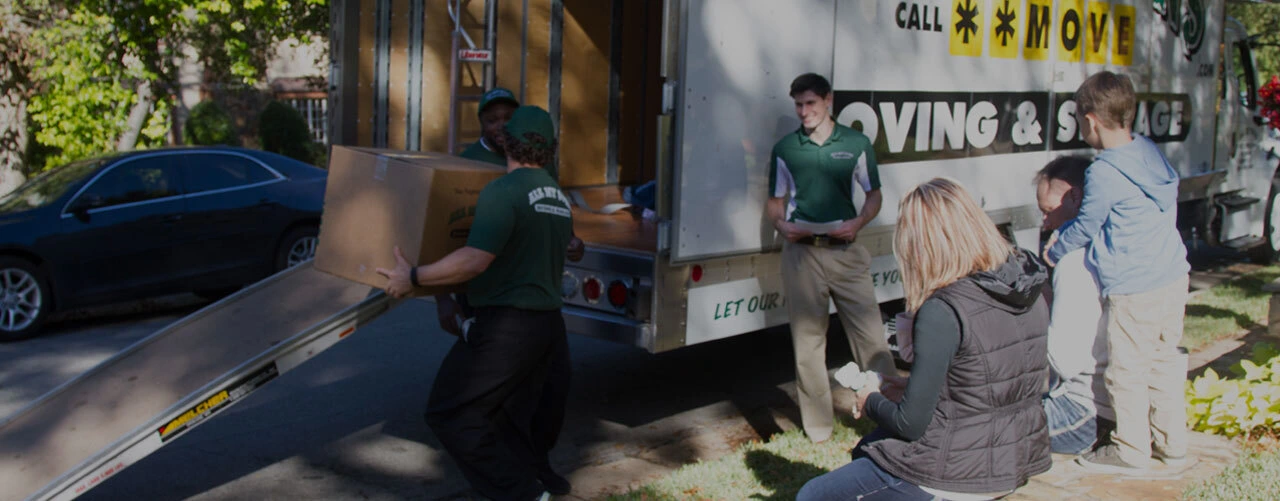A Complete Moving Checklist
Make sure you get everything done for your upcoming move to Oklahoma City!
Nobody likes moving- except for the All My Sons Moving & Storage Oklahoma City full service movers! But are you ready for moving day? From choosing your moving company to settling into your new home, All My Sons Moving & Storage has compiled the following Moving Checklist to help you make sure nothing is overlooked.
Six to Eight Weeks Before Your Move
Create a "Moving Planner Folder" file using an organizer folder with pockets to keep track of all your moving details and collect your receipts for moving-related expenses, including packing products.
Start to use up things you can't move, such as frozen foods and cleaning supplies.
If you're moving at an employer's request, verify your moving budget and your responsibilities.
Obtain information about what moving expenses may be tax-deductible.
Make a list with three columns: items to leave behind, items for moving company to move, and items you'll move by yourself. Create an inventory list that you can use when packing your items to label where they will be stored during the move.
Make a list of everyone you need to notify about your move: friends, professionals, creditors, subscriptions, etc.
Locate all motor vehicle registration and licensing documents.
If you will need to store some of your belongings, make the necessary arrangements now.
Collect all your personal records (school, medical, legal, and accounting). Ask for referrals where possible.
Five Weeks Before Your Move
Submit a Change of Address form to the post office.
Arrange special transportation for your pets and plants.
Arrange to Disconnect/Connect all utilities (gas, electric, oil, water, cable, internet and trash collection) at your old and new addresses. Keep utilities connected at your current home throughout your moving day.
Plan a garage sale to sell unneeded items or arrange to donate them to charity.
Collect important papers (insurance, will, deeds, stock, etc.)
Four Weeks Before Your Move
Start thinking about where you'll want to place furniture. Planning eases the stress of making major decisions when your furniture arrives at your new home.
If you're moving out of or into a building with elevators, contact the building management to schedule use of the elevators and inquire about any other guidelines that must be followed.
Three Weeks Before Your Move
This the part most people dread- packing. Make sure to create a packing plan so that you know what packing products you need. Start packing the items you will not need to use until after your move. Use your inventory list and label the name of the box that you pack each item in.
Make sure you have the right packing products. Label the contents of all boxes and pack carefully. Box essential items together and write "Open First/Load Last" on these boxes. When you move into your new home, you'll be able to easily identify these boxes and find essential items. It's a good idea to let a professional mover pack any fragile and valuable items.
Two Weeks Before Your Move
Contact your moving company to review and confirm all arrangements for your move.
Arrange to close accounts at your local bank and open accounts in your new locale.
Don't forget to withdraw the contents of your safety deposit box, pick up any dry cleaning, return library books and rented videotapes, etc.
As you pack, make sure to notify your movers if you add items or subtract items from your moving plan or if there are any changes in the dates of your move.
One Week through One Day Before Your Move
Check back through your Moving Planner Checklist to make sure you haven't overlooked anything.
Defrost your freezer and refrigerator. Block doors open so they can't accidentally close on pets or children.
Have your major appliances disconnected and prepared for the move.
Prepare a "Trip Kit" for moving day. This kit should contain the things you'll need while your belongings are in transit. Make sure to load your Trip Kit into your car to avoid it being loaded into the van by mistake. This trip kit should also include a box of personal items that will include all your jewelry and small valuables.
Call ahead to confirm the utilities are connected at your new home.
Moving Day
Strip your beds, and make sure the bedding goes into a Load Last box.
Make sure that someone is at home to welcome your movers and answer any questions. Your Van Foreman should present you with a Your Right and Responsibilities brochure.
Accompany the Van Foreman as he or she inspects and tags each piece of furniture with an identifying number. These numbers, along with a detailed description of your goods and their condition at the time of loading, will appear on the inventory. Read your Bill of Lading and Inventory carefully before you sign them. Keep these -- and all related papers -- in a safe location until all charges have been paid and all claims, if any, have been settled.
It is your responsibility to see that all your goods are loaded, so remain on the premises until loading is completed.
Move in Day
Review your floor plan to refresh your memory about where you want furniture and appliances placed.
Plan to be present when the moving van arrives. Be prepared to pay the mover before unloading. Have payment on hand for your moving charges.
Make sure you check the inventory sheets as items are unloaded and direct movers where you'd like the items to go.
Once all items are unloaded, unpack only what you need for the first day or two. Focus on creating a sense of home for your family.
Contact your Moving Consultant and inform them of the level of Quality and Service you received during the moving process.

